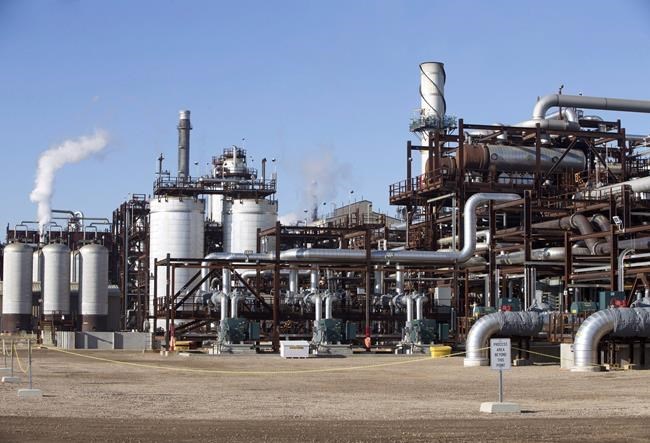CALGARY — Canada's energy sector will be the recipient of a wave of public and private investment dollars in the coming decade, experts say, as the push to reach net-zero greenhouse gas emissions by 2050 gains momentum.
On Tuesday, the federal government through the Canada Infrastructure Bank announced an investment of almost $1 billion into Ontario Power Generation for the construction of the country's first small modular nuclear reactor, which is being developed near the Darlington Nuclear Generating Station.
It was the kind of blockbuster announcement we can expect to see more of as the coming energy transition gathers steam, said Bruce Lourie, president of the Ivey Foundation, a private charitable foundation dedicated to supporting Canada's transition to a net-zero future while ensuring the country's long-term economic competitiveness.
"And every time there is an investment, every time there’s a new plant, there’s income from the investment, there’s jobs from the investment, there’s new economic activity, there’s trade,” Lourie said.
"We hear a lot about how it’s going to cost a lot to transition the energy system. Well, we’re going to benefit a lot too.”
According to a report from R–°¿∂ ”∆µ Capital, a record $920 billion was invested specifically in the global energy transition space in 2021, and tens of trillions more will be invested in the years to come as investors focus on decarbonization and growth.¬Ý
Investment dollars will be needed for everything from carbon capture and storage and other projects aimed at helping to "green" traditional high-emitting sectors like oil and gas extraction, as well as for renewables, nuclear, electrification, large-scale building retrofits and more.
The projects that ultimately win out, from an investor perspective, will be the ones that are reliable, affordable and capable of achieving social licence, said Jacquie Hoornweg, executive director of Ontario Tech University's Brilliant Energy Institute.
“If we’re committed that we’re going to do this (get to net-zero), we really have no choice but to invest in energy," Hoornweg said.
Over the past decade, Canada's energy sector has struggled with a lack of investment due to a variety of factors including commodity price woes, pipeline access issues, and regulatory and environment concerns. As a result, major new capital projects in the sector have been few and far between.
But in recent months, the Canadian oil and gas sector has rolled out a flurry of announcements of proposed projects — from hydrogen plants to renewable diesel facilities to carbon capture and storage — aimed at lowering the industry's emissions profile.
Most of these projects — as well as "clean" energy projects such as nuclear and hydro power — are capital-intensive and long-term, said Richard Norris, an expert in energy security and energy policy and a fellow with the Canadian Global Affairs Institute.
"You don’t build these things in less than five or 10 years," Norris said, adding the energy sector is probably entering into a decade of booming investor interest — something that will be amplified as more discretionary sectors are hit by the rising cost of living and slowing consumer spending.
"A lot of the sectors that have seen enormous growth over the last 20 years, particularly the tech sector, are not going to fare very well when energy costs get high," Norris said.¬Ý
"I think we’re going to see a structural shift of investors out of the exciting tech stocks and into the much more boring energy sector, because that’s the area we’re going to be seeing returns over the next few years.”
In an interview last month, Evan Siddall — head of the Alberta Investment Management Corp., which on Monday announced a $150-million investment in Tidewater Renewables, which is focused on the development of renewable fuels — said that AIMCo wants to be a leader in financing the transition to a low-carbon economy.
"We see the potential for strong financial returns," said Siddall in the interview. "We're a long-term investor, so unlike public markets that tend to operate quarter to quarter with much shorter-term horizons, we can look to a transition into 2030 and see the path to earning a return on decarbonization."
This report by The Canadian Press was first published Oct. 26, 2022.
Amanda Stephenson, The Canadian Press




